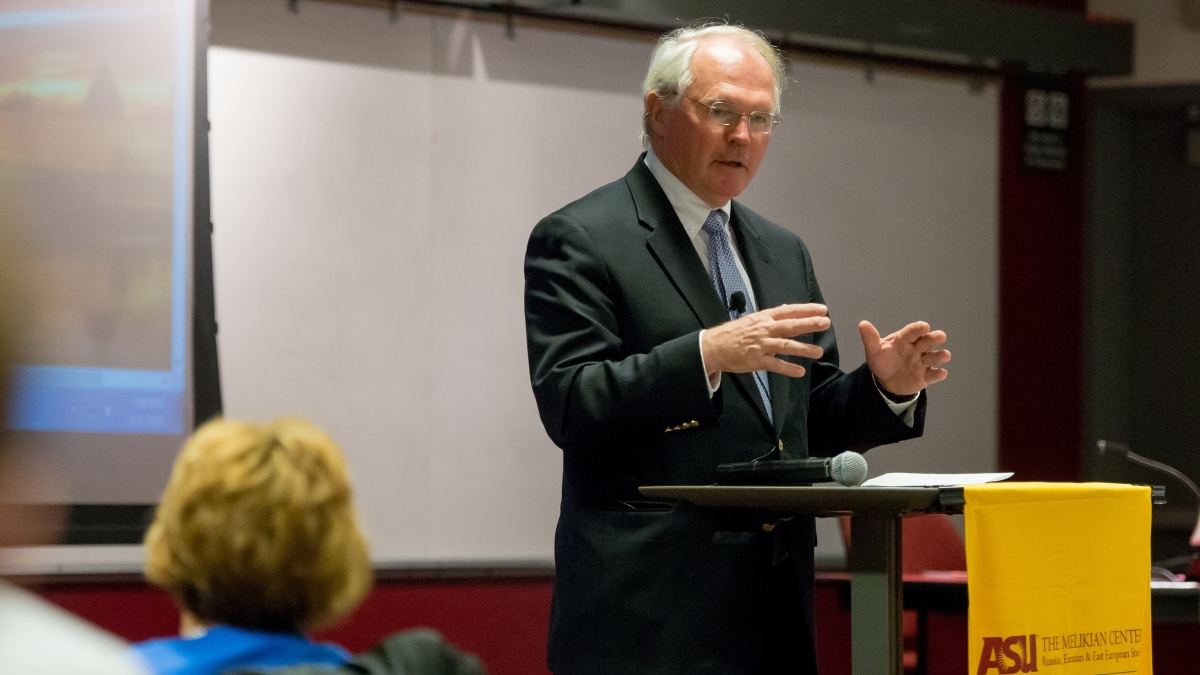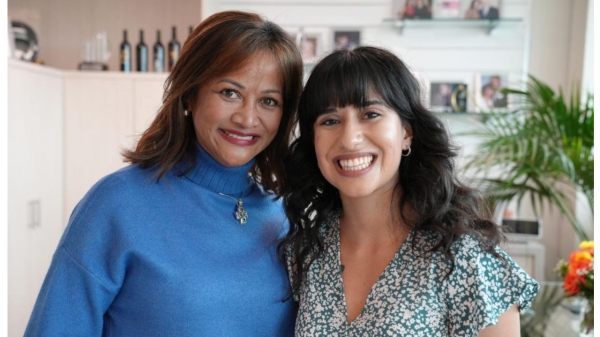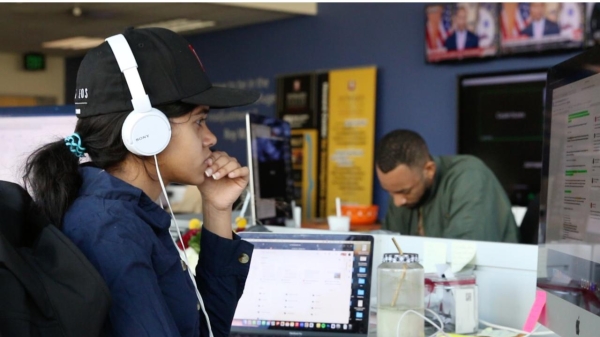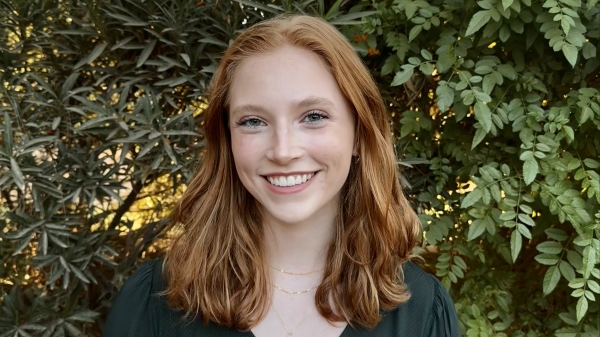'There's a lot to do out there'
Ambassador Christopher Hill discusses the hard work of diplomacy in a lecture at ASU

The United States is facing many global problems that demand diplomacy, but America must always be wary of unintended consequences, according to one of the country’s top diplomats.
“There’s a lot to do out there,” said Christopher Hill, who served four ambassadorships under three presidents. “But when you engage in a big pivot move, even small things can be open to misinterpretation.”
Hill (pictured above) gave the 20th annual Mary Choncoff Endowed Lecture at Arizona State University on Thursday. The talk was sponsored ASU’s Melikian CenterThe Melikian Center is an instructional and research unit of the College of Liberal Arts and Sciences., which supports undergraduate and graduate students studying Eastern Europe and Eurasia.
Hill, now dean of the Korbel School of International Studies at the University of Denver, was ambassador to Macedonia, as well as Poland, South Korea and Iraq. He co-authored the Dayton Accords, ending the Bosnian Secession War, and served as special assistant to the president heading the Six Party Talks on the North Korean nuclear issue.
In his speech, Hill said that sectarian violence in Iraq is one unintended consequence of the U.S. military surge.
“We didn’t understand what the fault lines were,” he said. “It’s fair to say that ISIS is worse as a result of the loss of Iraq to the Shiites.”
Hill said that the U.S. switch in diplomatic attention from the Middle East to Asia — President Barack Obama’s so-called “pivot to Asia” — in the past few years had several consequences, including accusations that the Americans were “confronting” China.
Even more fraught, however, is the U.S. relationship with Russia, which Hill said is a result of U.S. “triumphalism” in the 1990s.
“End zone dancing in the NFL is fine. But with the demise of the Soviet Union, the perception was that we won the Cold War,” he said.
“We now have the second iteration of Russia after the Cold War. The first was when Russia was in shock but willing to work with us.
“Now we have a brutal, nasty regime whose foreign policy operates on the basis of spite: ‘What you want, we don’t want and whatever you don’t want, we want.’
“It’s a dangerous problem, but one reason it’s dangerous is that they are a regime in decline.”
Hill said that the U.S. must be more attentive to its alliances in Europe.
“We need to finish the enlargement of NATO. It’s high time we brought Macedonia into NATO.”
Hill was introduced by Lattie Coor, former president of ASU. Hill’s visit to ASU was a return favor of sorts. In 1998, Hill was the U.S. ambassador to Macedonia and hosted a gathering in Skopje for Coor and his wife, Elva, marking the 25th anniversary of the ASU academic exchange with the University of Saints Kiril and Metodij in Macedonia. More than 130 Macedonian scholars crowded into the party, leading Coor to remark that it was the largest ASU alumni rally he had ever attended outside the United States.
Hill recently released a memoir, “Outpost: Life on the Frontlines of American Diplomacy,” in which he credited his stint in the Peace Corps with instilling in him the determination to fully understand other countries, and not tell them what to do.
In his speech, Hill said that the complex issues facing Syria can present an opportunity for the U.S. to work in diplomatic partnership with Russia.
“The thing about diplomacy is that the only rabbits you pull out a hat are the ones you stuff in there.
“You have to do a lot of hard work.”
Top photo by Ben Moffat/ASU Now
More Law, journalism and politics

When giving goes global: ASU family invests in students studying media abroad
The dream of studying abroad and making connections globally while in college is often hindered by the substantial cost of traveling and living in a different country. But thanks to the generosity…

ASU, UMD Howard Centers partner with AP global investigations team on yearslong investigation into police use of force
The Associated Press global investigations team, the Howard Centers for Investigative Journalism at Arizona State University and the University of Maryland (UMD), and "Frontline" (PBS) on Thursday…

ASU senior's thesis explores gender, politics and perception
For all its benefits, social media is an environment that remains rife with judgement, especially if you're a public figure, and — according to an Arizona State University student's recent research…